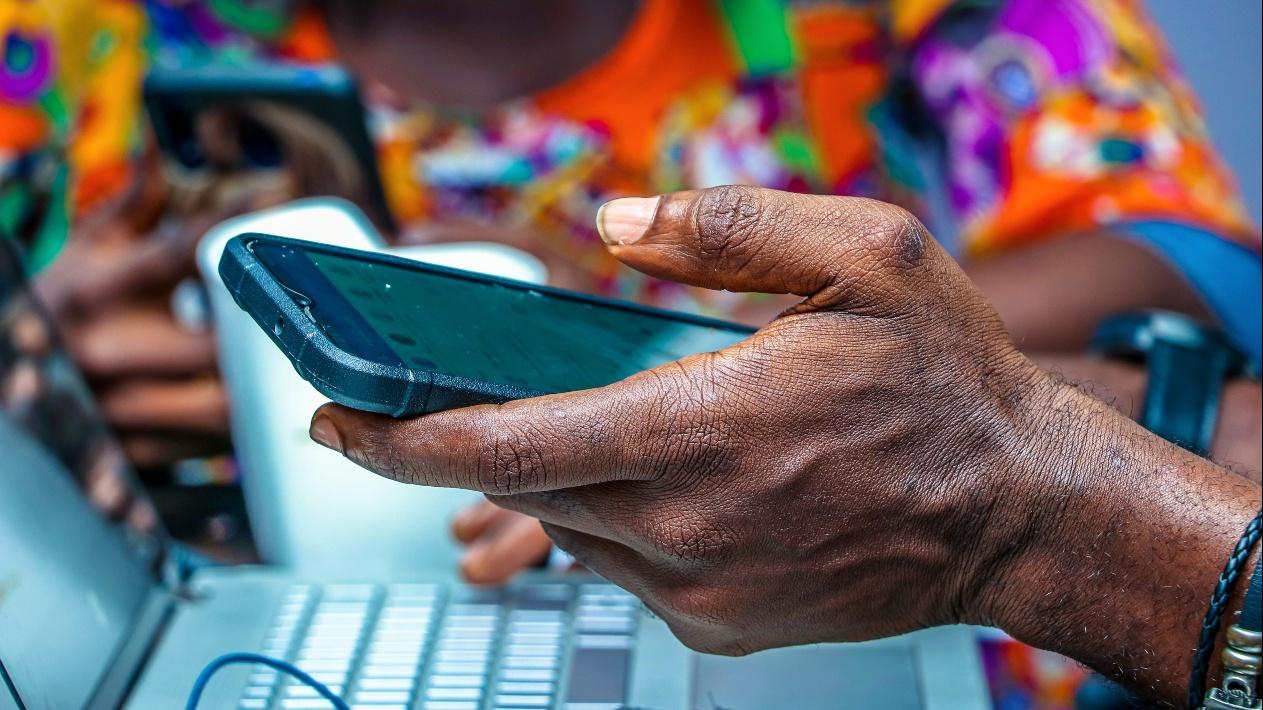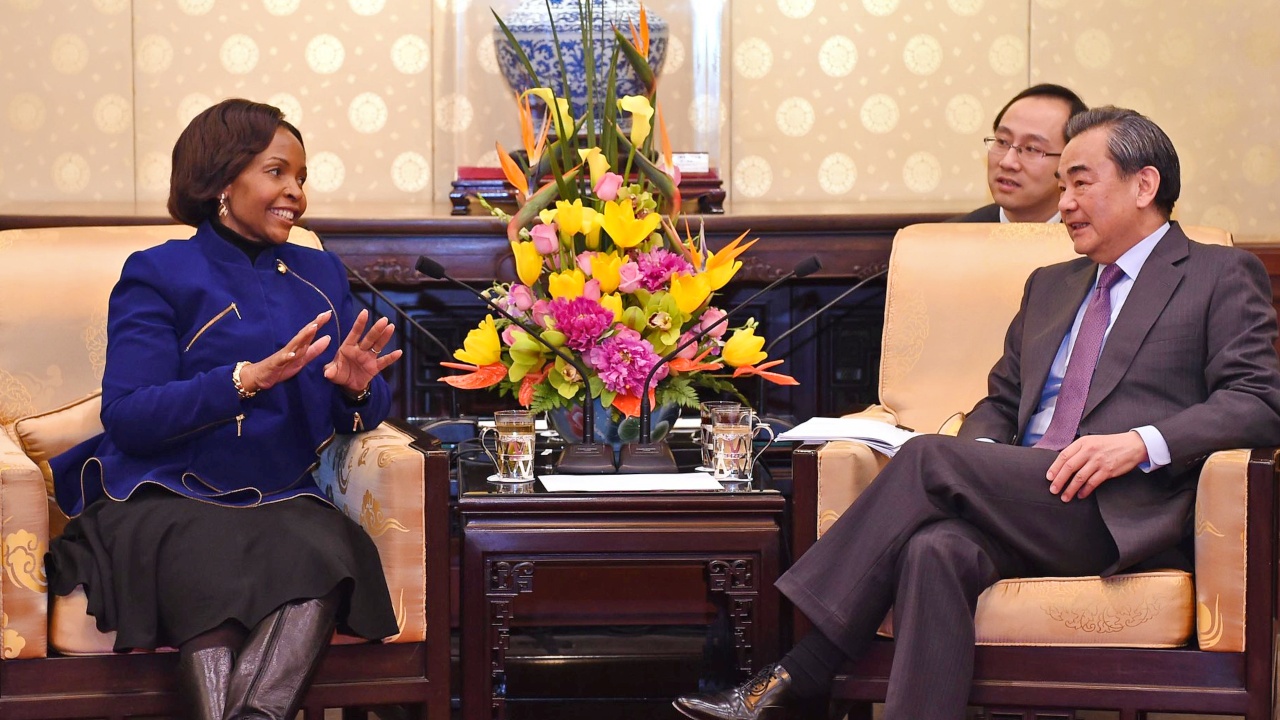As China has risen as a global power, its strategy has expanded for engaging Africa. But what has been the African response? Lloyd G. Adu Amoah writes that Africa needs to think and coordinate strategically to maximise its relationship with China, pursuing long-term, integrated goals through the African Union and at state levels.
China’s increasing political and economic influence globally has attracted attention for its potential to change, or its process of actually changing, the global order of power established for centuries. To be sure, China’s own actions writ large have fuelled this view of the country. In an audacious move, for example, it established the Asian Infrastructural Investment Bank to give the World Bank and other international financial institutions a (literal) run for their money. Among these anxieties is the country’s role in the development of global regions. In particular: what is China up to in Africa?
Africa’s China connection(s)
In the first decade of the 21st century, China barely disguised its grand designs on Africa – the putative playground of great powers. This was reflected rather pointedly in the creation of the Forum on China-Africa Co-operation (FOCAC) mechanism, a diplomatic and economic partnership platform first held in October 2000. While the African envoy from Madagascar at the time, Lila Ratsifandrihamanana, was the FOCAC architect, perhaps ironically, China has exploited to the hilt the organisational, networking and strategic advantages the Forum presents. The declarations and action plans released after various ministerial and Summit conferences ostensibly reflect mutually agreed policy areas of focus on areas such as trade, economics and development, with statements on realising key targets; the wording, however, shows China firmly in the driver’s seat to provide succour to a (often presented) hapless Africa in dire need. The 2021 China-Africa Cooperation Vision 2035 is a classic example. References to China’s ‘support’ and ‘help’ for Africa are strewn liberally throughout the text (and not in the reverse). So much for mutuality and win-win.
Attempts to make sense of Africa-China interactions therefore straddle the darkly pessimistic and the overly optimistic – a decidedly Manichaean view. China is accused of being aloof about governance (read as the proper practice of liberal democracy) and laser beam-focused on extracting minerals and grabbing African land. For these reasons China’s engagement with Africa has been framed in imperialist and neo-colonial terms. By others, China is presented as a welcome partner to support Africa’s much tarried industrialisation and prosperity. When it comes to debates in Africa-China relations, Africa’s own strategic responsibilities can seem lost.
China’s strategy for engaging Africa
Strategy matters in Africa-China relations – not least for China for whom the relationship has a proven efficacy. Indeed the popular and academic global attention on the relationship comes from its success. Initially displaying cold feet towards a more formal and structured multilateral engagement with Africa before 2000, China took to it with gusto in the FOCAC process.
FOCAC entered its third decade in 2021. The process now involves yearly Senior Officials Meetings (SOMs) capped by meetings between foreign ministers and Heads of State. China has thrown at FOCAC virtually all its key ministries, departments and agencies (33 at the time of writing), dedicating to the Forum massive human, ideational, financial and informational resources overseen by a FOCAC Secretariat, which China established in its Foreign Ministry (operational since 2000).
But China also engages Africa through other key multilateral processes, particularly the Belt and Road Initiative with its large-scale infrastructural development. Additionally, China engages African states on a bilateral level; for example, architecture is deftly utilised to promote and consolidate its African presence. Through these strategic moves, China’s Africa engagement processes at the multilateral level have become a model for other big and small powers to create similar FOCAC engagements, such as Russia, India, Korea, Singapore and, lately, Turkey. The similarities of the mechanisms and language between China and Turkey have become as striking as they are canny.
Africa’s strategy for engaging China
In recent years the African Union (AU) has shown a greater awareness of the strategic deficits that have marked the continent’s engagement with China since FOCAC started. The AU in 2018 reportedly set-up an Office to oversee, review and harmonise its strategic partnerships with external states, although its size pales in comparison to China’s FOCAC Secretariat. African scholarship has long flagged this issue.
While the AU underlines the importance and responsibility of engaging China and other partners strategically, such an approach must also be reflected in African leadership at the state level. China deals with the AU and African states at the same time; and these states must be equally ready – both institutionally and ideationally. Ghanaian President Kwame Nkrumah provides a useful example with his China policy in the 1960s, signing four agreements with the country, in which an agreement on trade made a provision against trade imbalances.
Industrialisation for Africa has long been a nagging issue. Current trade structures between the continent and China simply make the former consumers of Chinese manufacturing and, thereby, stymie its industrial development. At the same time, China’s citizens have relocated to Africa in numbers historically unprecedented; they have opened shops and can be seen street hawking, with some instances leading to protests. Such issues can only be effectively addressed through considered policy actions by African states themselves.
Africa’s strategic responsibility matters at both continental and state levels. Only through such means can Africa engage China sufficiently to maximise the continent’s immediate and long-term benefits.
Photo: 2018 FOCAC Summit | Beijing, 4 September 2018. Credit: Paul Kagame. Licensed under CC BY-NC-ND 2.0.





